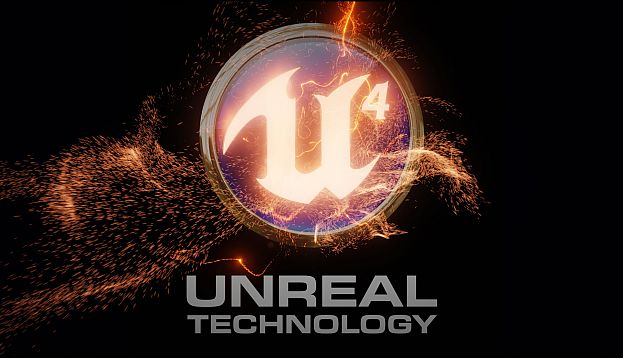The games and game developers being crafted at universities will be getting more Unreal soon, as Epic Games is making Unreal Engine 4 free to schools and universities. Educational organizations can obtain Unreal Engine 4 access for faculty and students through unrealengine.com/education. Clearly, Epic is looking to make Unreal Engine 4 one of the standard tools used by students, and looking to see that expertise translate into greater use in the commercial marketplace as students graduate and move into industry.
“Unreal Engine 4 is the most accessible, beginner-friendly version of the engine ever created,” according to the company. “Developed by Epic Games, the award-winning Unreal Engine is known for world-class graphics, tools and scalability across PC, console, mobile, Web and VR,” noted the company’s statement.
Jim Whitehead is an Associate Professor and Chair of Computer Science at the University of California, Santa Cruz, where he helped create the Computer Game Design program. His view of Epic’s new program to provide Unreal Engine 4 for free is positive. “We like to encourage our students to work with C++, and hence Unreal is attractive to us because it is a full-featured game engine where you customize using C++,” said Whitehead. “Unity, which we had been using, emphasizes use of C#. Unreal will also be attractive at the free price point (assuming no gotchas in the license), since Unity has been somewhat expensive.”
Still, Whitehead doesn’t see the transition happening rapidly. “Unity currently has a lot of mindshare among our students, so I imagine it will take some time to turn this around in favor of Unreal,” he noted.
The [a]listdaily spoke exclusively with Unreal Engine general manager Ray Davis about the new program for academia.
What led to the decision to make Unreal Engine 4 available to the academic community?
It was a culmination of growing interest from educators who have previously integrated engine technology into their courses, along with repeated feedback from students in our community who really wanted to see free access to Unreal Engine 4.
Additionally many of the developers at Epic today were able to learn game development techniques in the past using UDK, the free version of Unreal Engine 3, so it only made sense to make UE4 widely available to help fuel the next generation of game developers.
UE4 can also serve as a valuable learning tool even outside of game development — be it traditional computer science, film majors, or even architectural visualization, all of these tracks can benefit from the technology provided with UE4.

Have you discussed this with some institutions already? What has been the response?
Since our launch back in March several educators have been in touch with us and we’ve been working with them to provide access to UE4. For those early adopters we’ve received a lot of great feedback that has helped us further improve the engine and our supporting documentation. I can only imagine those educators will be excited by our new open approach that gives them unrestricted access to Unreal Engine from here on out.
As many student projects end up becoming commercial software, how will you deal with the use of Unreal Engine 4 in such a case?
Students who choose to cross over into indie developer territory and ship their class projects as full games will be under the same agreement that other UE4 developers work with today. Successful games that make more than $3,000 per quarter are obligated to pay Epic 5 percent of gross revenues which means we only are successful when the developers themselves are successful.
Student developers now have no upfront costs to build their masterpiece, and can ship on any number of platforms with UE4 without any additional fees.
What’s the response been to the new Unreal Engine 4 licensing program announced back in March?
People continue to surprise and inspire us with their contributions to the UE4 community. Developers have already created content and features that have far exceeded our expectations.
Given that we make the entire C++ source code available through GitHub, we’ve been blown away by how many engine modifications and features that the community has pushed back to us for inclusion in version updates. We’ve built a fairly open and transparent dialogue with our community which has been well-received by developers using the engine and also really helped us dramatically refine our approach to building future releases.
What does the future hold for Unreal Engine?
The list of planned features and improvements is long! In the near term we’ll continue polishing existing workflows and features. For example, we have efforts in flight to make sure any developer targeting a mobile device or using a laptop as their primary machine consistently have great development experiences with the engine. We also have concerted pushes along new features such as 2D support, refining our UI editor, and also supporting emerging VR platforms such as Oculus and Sony’s Morpheus. At any given time everyone is welcome to see our development roadmap at unrealengine.com/roadmap and vote on the features they’re most interested in seeing next!

